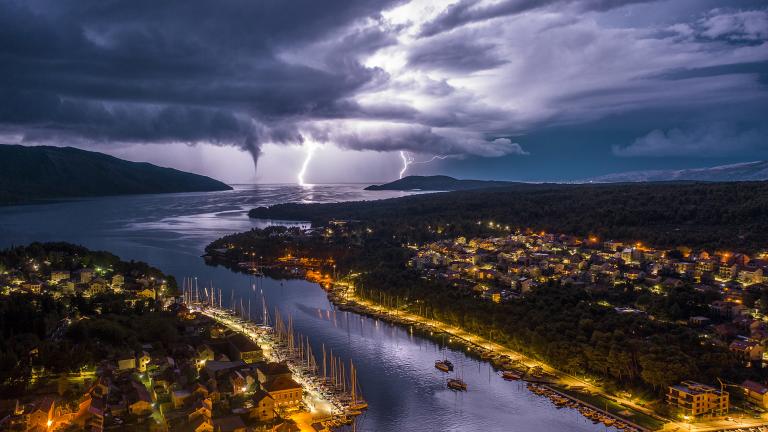About EW4All
The Early Warnings for All (EW4All) initiative aims to ensure that everyone, everywhere, is protected by life-saving early warning systems by 2027. Led by WMO, UNDRR, ITU, and IFRC, the initiative strengthens global collaboration to enhance risk knowledge, monitoring, communication, and preparedness for climate-related hazards.
Early Warnings for All objectives and Action Plan
The Early Warnings for All initiative brings together the broader UN system, governments, civil society and development partners across the public and private sectors to enhance collaboration and accelerated action to address gaps and deliver people-centered, end-to-end multi-hazard early warning systems. Through coordination and collaboration, the initiative aims to build on and scale up existing efforts and capacities, promoting synergies among initiatives and partnerships across sectors to protect lives and livelihoods from natural hazards such as floods, heatwaves, storms and tsunamis.

Early warning systems have proven to be a cost-effective and reliable solution to protect lives and livelihoods from natural hazards such as floods, heatwaves, storms and tsunamis. The Global Status Report (2022) reveals that countries with substantive-to-comprehensive early warnings coverage have disaster mortality eight times lower than countries with limited coverage. According to the Global Commission on Adaptation, giving just 24 hours’ notice of an impending hazardous event can reduce damage by 30 per cent. Investing just US$800 million in such systems in developing countries would prevent losses of $3 to $16 billion annually.
Advisory Panel
To ensure progress and the continued strategic alignment of activities with implementing bodies, the UN Secretary-General created the Early Warnings for All Advisory Panel, co-chaired by the Executive Heads of WMO and UNDRR, for the duration of the Initiative. The Advisory Panel consists of the Heads of a multitude of UN organizations, the private sector, civil society and UN Member States. Meetings of the Advisory Panel occur biannually, and the Panel prepares an annual progress report to the Secretary-General on the status of the Initiative’s activities.
The initiative is also engaging development partners through existing partnerships and coalitions such as the Alliance for Hydromet Development, the Risk-informed Early Action Partnership and other regional partnerships and alliances.
